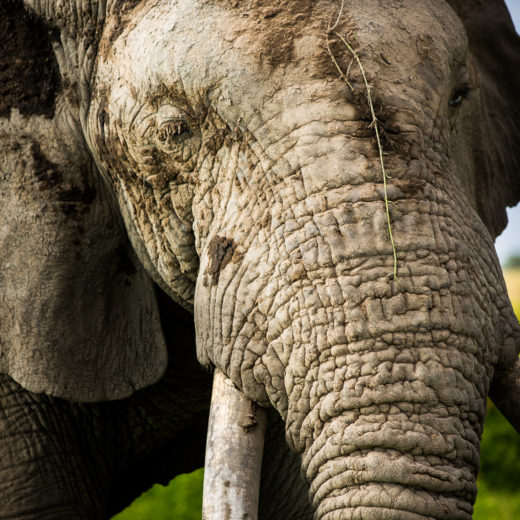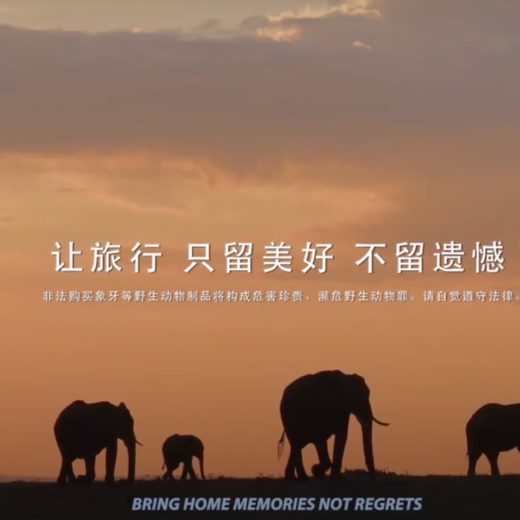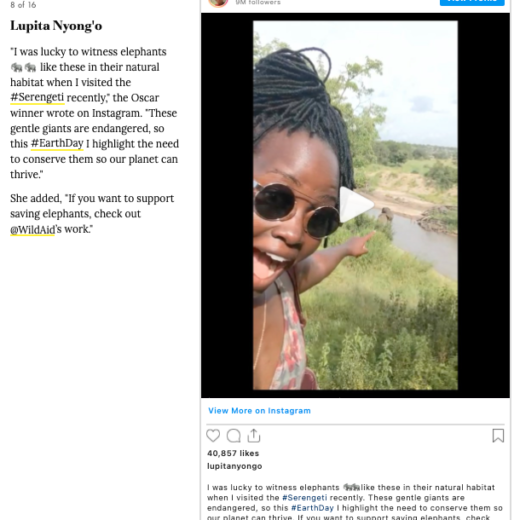
Tanzania is the epicenter of Africa’s elephant poaching crisis. Over the past five years, poachers killed half of the East African nation’s elephants, and two-thirds of the country’s elephant population has been wiped out since 2006, according to a November report by the Environmental Investigation Agency. Black rhino populations are even more imperiled, their total numbers in Tanzania having plummeted to around 30 according to recent news reports.
Tanzania is also a deeply religious country, and faith leaders have a great influence on the lives of its citizens across the social strata. That’s why WildAid recently organized an interfaith workshop to better partner with prominent religious leaders who share our deep concerns about the future of Tanzania’s wildlife.
As one attendee put it, “When you involve religious leaders, you avoid using guns and prisons as a means of enforcement. The people around those communities are our people and our responsibility. We have the ability to reach them much faster than any radio or television station.”
We were joined by Minister of Natural Resources and Tourism Lazaro Nyalandu, who gave an overview of enforcement efforts in Tanzania’s game reserves and national parks. Later this month, the ministry is expected to release statistics on elephant and rhino populations in the country.


“As religious leaders, you have the power and opportunity that the government doesn’t,” Minister Nyalandu told the attendees. “You’re the strongest instrument in the war against poaching. We need your support.”
WildAid’s team presented on the scope and severity of Tanzania’s poaching crisis for both elephants and rhinos, and showed examples of our PSAs that discourage buying ivory and rhino horn.
The faith leaders were outraged by the scale of the problem, and pushed Minister Nyalandu for better communication, stronger enforcement and harsher criminal penalties for poaching.
“Elephants and other animals are citizens of this country. They have a right to live here,” said Bishop Valentino Mokiwa of the Anglican diocese of Dar es Salaam. “These animals are made by God for the good of human creation. Even though elephants cannot vote, they can have influence over who becomes our next president.”
Sheikh Alhad Musa Salum echoed Bishop Mokiwa’s sentiments. “As humans beings, we must be good to these animals, despite hard financial difficulties and the high rate of unemployment in this country,” he said.
Whether Christian or Muslim, the clerics attending our workshop agreed that their respective faiths called for the preservation of Tanzania’s endangered wildlife before it’s too late. — Susie Watts and Salome Gasabile
Stay in touch and get the latest WildAid updates.
SIGN UPAbout WildAid
WildAid is a non-profit organization with a mission to protect wildlife from illegal trade and other imminent threats. While most wildlife conservation groups focus on protecting animals from poaching, WildAid primarily works to reduce global consumption of wildlife products such as elephant ivory, rhino horn and shark fin soup. With an unrivaled portfolio of celebrity ambassadors and a global network of media partners, WildAid leverages more than $308 million in annual pro-bono media support with a simple message: When the Buying Stops, the Killing Can Too.
Journalists on deadline may email communications@wildaid.org


